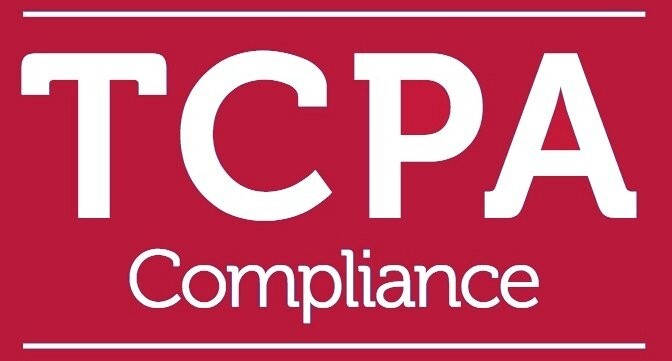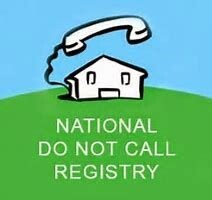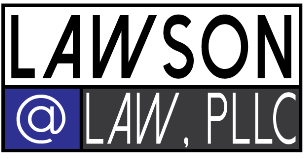Stopping Junk Calls and Texts

The Telephone Consumer Protection Act (TCPA)
Along with the Do Not Call Registry (“DNC”), The TCPA is a powerful federal law governing the regulation of telephone solicitations. The TCPA prohibits unconsented texts, robocalls, and faxes. Private attorneys such as Lawson at Law, PLLC provide the primary enforcement agent for the TCPA, which carries substantial penalties for each illegal call, text, and fax.
The TCPA provides for recovery of $500 for each unconsented call, text, and fax, which may be enhanced to treble damages of $1,500 for each willful violation.
Who Must Comply With the TCPA?
The TCPA regulates telephone solicitations. Therefore, any person, business, or entity that conducts telephone solicitations should comply with the TCPA. The TCPA covers voice calls, faxes, VoIP calls, and text messages.
The text of the law itself defines “telephone solicitation” as "the initiation of a telephone call or message for the purpose of encouraging the purchase or rental of, or investment in, property, goods, or services, which is transmitted to any person, but such term does not include a call or message (A) to any person with that person’s prior express invitation or permission, (B) to any person with whom the caller has an established business relationship, or (C) by a tax exempt nonprofit organization.”
The TCPA does not solely apply to the entities that conduct calling campaigns. Entities may be found vicariously liable for TCPA violations committed by agents that the entities have hired to conduct their calling campaigns, even if the hiring entities did not commit the violations directly.


What Are the Requirements of the TCPA?
The TCPA contains a number of different provisions. In order to avoid committing TCPA violations, callers must comply with all of these requirements.
Calling Time Restrictions
Callers may contact residential consumers only between 8:00 AM and 9:00 PM (recipient’s time zone).
Internal Do Not Call (DNC) List
Callers are required to maintain an internal DNC list of consumers who asked not to be called or texted.
Automatic Telephone Dialing Systems (ATDS)
The TCPA restricts autodialed marketing calls and texts to cell phones and other devices where the recipient might be charged for the call without prior express written consent, and non-marketing autodialed calls without prior express consent.
Robocalls
The TCPA does not allow the use of an artificial or prerecorded voice to be used to call a residential landline or wireless number for marketing purposes without prior express written consent.
Identification Requirements
Among other things, the TCPA requires the caller to provide their name, the name of the company on whose behalf they are calling, and a telephone number or address which can be used to contact them again.
Need a Free Attorney’s Review of Your Credit Report?
Call me at (502) 473-6525 today. Like the initial consultation, the call is free!
National Do Not Call Registry
Marketers are required to suppress phone numbers on the National Do Not Call Registry. Remember that some states have their own local DNC lists as well, separate from the federal list.
How Is the TCPA Enforced?
The TCPA allows for a variety of enforcement mechanisms. The most significant is a private right of action that allows consumers to bring individual lawsuits and class actions. In 2019 and 2020, more than 3,000 TCPA complaints were filed in federal court. The TCPA is a strict liability statute with uncapped statutory damages and per-violation penalties that can be as high as $500-per-violation. Willful violations can be trebled as high as $1,500-per-violation. All of these elements combine to make for settlements and judgments in TCPA class actions that routinely reach tens of millions of dollars. One TCPA class action resulted in $925 million worth of penalties against a debt collector.
Additionally, through the TCPA itself and its legislative successors such as the TRACED Act, the TCPA gives the authority to enact regulatory enforcement to a number of government entities. In particular, the FCC and FTC have broad regulatory powers to enforce the TCPA.


Common causes of TCPA violations.
Reassigned Numbers
Nearly 100,00 numbers are reassigned each day. Since consent is associated with the called party and not the phone number, the possibility of contacting reassigned numbers brings an enormous amount of TCPA risk.
DNC Violations
Following the Supreme Court’s decision in Facebook v. Duguid, TCPA litigators have turned their focus to alleging DNC violations. Additionally, an increased emphasis on state-level telemarketing regulations is likely to raise the risk level of DNC violations. There are different DNC lists—federal, state, and internal DNC—and DNC compliance is taking on renewed importance.
Inaccurate Data
Marketers often acquire contact information from outside lead generators. While this can be a valuable source of new leads, it also brings the possibility of inaccurate or outdated data. Having the wrong information is often the first step in the pathway to TCPA violations.
Strict Liability Statute
The TCPA is a strict liability statute, meaning no forgiveness is given for unknowing or good faith mistakes. Marketers can rack up thousands of violations (or more) without even realizing that they are doing so and the TCPA offers no forgiveness. In fact, there are treble penalties for knowing violations.
Uncapped Statutory Damages
This element of the TCPA makes it such a costly source of litigation is the fact that it has uncapped statutory damages. The only limit on how large a penalty can be assessed is how many violations were committed.
Private Right of Action
The law’s private right of action—and court opinion determining that it can be used to pursue nationwide class actions—allows for such enormous penalties for TCPA violations. While the FCC has, on occasion, levied large fines for violations of telemarketing laws, that sort of regulatory action rarely happens at the scale and frequency of class actions brought by plaintiffs under the TCPA’s private right of action.
Per-Violation Penalties
TCPA penalties are assessed on a per-violation basis—up to $500-per-violation and up to $1,500-per-willful-violation. Combined with the uncapped statutory damages, these penalties can add up.
TCPA Claim Checklist
In the last four (4) years, has a business called or sent texts to your cell phone multiple times?
The TCPA requires more than one call in four years to establish a claim.
Did you ever put that number on the application or give them permission to call?
Consent or permission for calling you is a defense to any TCPA claim. But if you have revoked your permission to receive calls and texts, you may have claim for any calls or texts made after you revoked your consent.
Have you received robocalls or texts, i.e. calls that begin with an artificially created or prerecorded message or texts that have a prewritten script?
The TCPA does not like prerecorded junk calls any more than you do. If you receive such calls, PLEASE record the calls for evidence to support your claim. Also, screenshot any and all calls that show date and time of the calls. The same with junk texts: screenshot the texts to support your claim.
If you would like us to help you stop these calls and get you compensation for the harassment and abuse, PLEASE call, text, or email us today.

